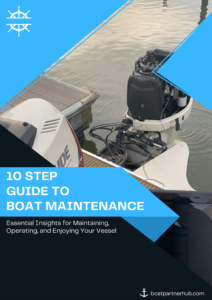Blog
Marine Solar Panels Review

Sailing with Solar: A Comprehensive Review of Marine Solar Panels for Efficient and Eco-Friendly Boating
Harnessing the power of the sun for your boating adventures is not only environmentally friendly but also cost-effective and efficient. Marine solar panels provide a sustainable energy solution, allowing you to charge your boat’s batteries and run essential electrical systems while on the water. With various marine solar panels available in the market, it’s crucial to select the right one for your boat’s specific needs. In this comprehensive review, we will evaluate and compare different types of marine solar panels, helping you make an informed decision to embrace clean energy and enhance your boating experience.
1. Types of Marine Solar Panels
There are several types of marine solar panels, each offering unique advantages:
- Monocrystalline Solar Panels: Known for their high efficiency and performance, monocrystalline panels are ideal for boats with limited space for solar installations.
- Polycrystalline Solar Panels: More affordable than monocrystalline panels, polycrystalline panels provide good efficiency and work well in moderate sunlight conditions.
- Flexible Solar Panels: Designed to conform to various surfaces, flexible solar panels are perfect for irregular or curved boat surfaces and offer easy installation.
2. Solar Panel Capacity and Power Output
Consider the capacity and power output of the solar panels:
- Wattage: Higher wattage panels generate more power, suitable for boats with higher energy demands.
- Voltage and Amperage: Pay attention to the panel’s voltage and amperage ratings, as they determine the charging capacity.
3. Size and Space Availability
Evaluate the available space on your boat for solar panel installation:
- Size and Dimensions: Choose panels that fit comfortably on your boat’s deck or roof.
- Weight: Consider the weight of the panels, especially for sailboats and smaller vessels.
4. Mounting Options
Select the mounting option that suits your boat’s structure:
- Fixed Mounts: Fixed mounts are secure and sturdy but may require drilling holes on the boat’s surface.
- Semi-Flexible Mounts: Semi-flexible mounts offer easy installation and are suitable for curved surfaces.
- Portable Mounts: Portable mounts allow you to adjust the panels’ angle and position for optimal sunlight exposure.
5. Durability and Weather Resistance
Marine solar panels should withstand harsh marine conditions:
- Waterproof and Corrosion-Resistant: Look for panels designed to resist water and saltwater corrosion.
- Impact Resistance: Durable panels can withstand potential impacts and rough handling.
6. Regulator and Controller Compatibility
Check if the solar panels are compatible with your boat’s battery regulator or charge controller.
7. Customer Reviews and Ratings
Research customer reviews and ratings to assess the solar panels’ performance and reliability based on real-world experiences.
8. Warranty and Support
Consider the warranty and customer support offered by the solar panel manufacturer.
Conclusion
Marine solar panels offer an eco-friendly and sustainable solution to power your boat’s electrical systems while reducing reliance on fossil fuels. Carefully consider the type of panel, capacity, power output, size, and mounting options to select the ideal solar panels for your boat. Embrace the benefits of clean energy as you sail the waters, knowing you are contributing to a greener future and enjoying the freedom of endless power from the sun.
FAQs
- Can I install marine solar panels myself? Depending on your boating experience and knowledge, you may be able to install marine solar panels yourself. However, professional installation is recommended for optimal performance and safety.
- How much power can marine solar panels generate? The power output of marine solar panels varies based on their wattage and the amount of sunlight they receive. Higher wattage panels generally generate more power.
- Are marine solar panels weatherproof? Yes, marine solar panels are designed to be weatherproof and withstand exposure to rain, sun, and saltwater.
- Do I need a charge controller for my marine solar panels? A charge controller regulates the amount of power going into your boat’s batteries, preventing overcharging. It’s recommended to use a charge controller with your marine solar panel setup.
- Can marine solar panels power all electrical systems on my boat? The power output of marine solar panels may not be sufficient to power all electrical systems on larger boats. However, they can significantly reduce your reliance on other power sources and help maintain battery levels while at anchor.


